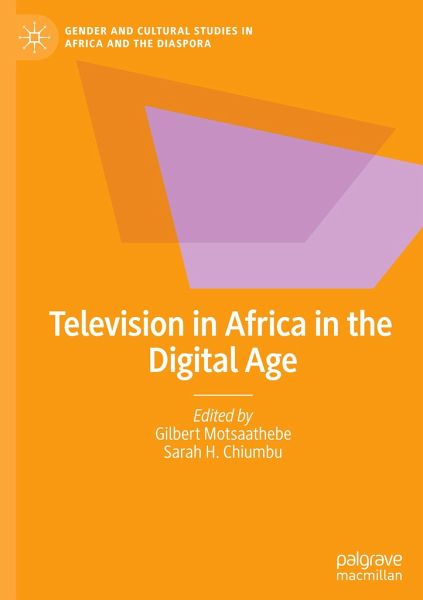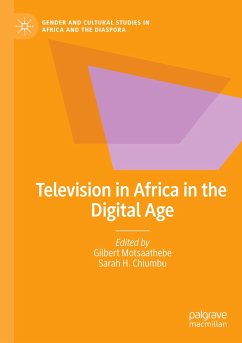
Television in Africa in the Digital Age

PAYBACK Punkte
46 °P sammeln!
This book places television in Africa in the digital context. It address the onslaught of multimedia platforms, digital migration and implication of this technology for society. The discussions in the chapters contained in this book encompass a wide range of issues such as digital disruption of television news, internet television and video on demand platforms, adaptations, digital migration, business strategies and management approaches, PBS, consumption patterns, scheduling and programming, evangelical television, and many others. The book is an important reading for academics, students and ...
This book places television in Africa in the digital context. It address the onslaught of multimedia platforms, digital migration and implication of this technology for society. The discussions in the chapters contained in this book encompass a wide range of issues such as digital disruption of television news, internet television and video on demand platforms, adaptations, digital migration, business strategies and management approaches, PBS, consumption patterns, scheduling and programming, evangelical television, and many others. The book is an important reading for academics, students and television practitioners. It offers an insightful view of television in Africa.














